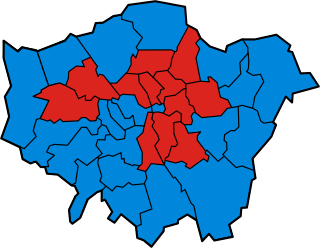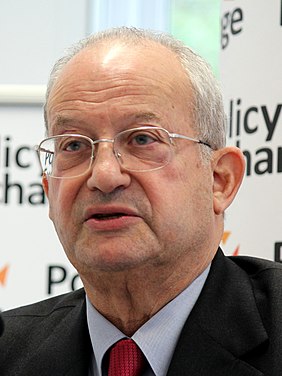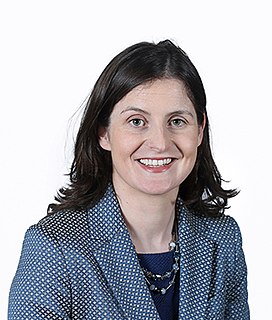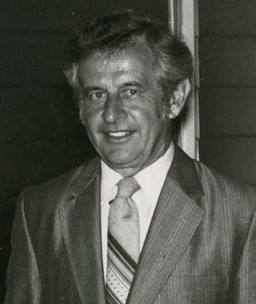
Princess Alice, Countess of Athlone was a member of the British royal family. She was the longest-lived British princess of the blood royal, and was the last surviving grandchild of Queen Victoria. Princess Alice was the chatelaine of Rideau Hall from 1940 until 1946, while her husband, Lord Athlone, served as the governor general of Canada.

Major General Alexander Cambridge, 1st Earl of Athlone, was a British Army commander and major-general who served as Governor-General of the Union of South Africa and as Governor General of Canada.
The Professor of Poetry is an academic appointment at the University of Oxford. The chair was created in 1708 by an endowment from the estate of Henry Birkhead. The professorship carries an obligation to lecture, but is in effect a part-time position, requiring only three lectures each year. In addition, every second year, the professor delivers the Creweian Oration, which offers formal thanks to benefactors of the university. Until 1968 this oration was delivered in Latin.

The 2005 Conservative Party leadership election was called by party leader Michael Howard on 6 May 2005, when he announced that he would be stepping down as Leader of the Conservative Party in the near future. However, he stated that he would not depart until a review of the rules for the leadership election had been conducted, given the high level of dissatisfaction with the current system. Ultimately, no changes were made and the election proceeded with the existing rules, which were introduced in 1998.

The 2008 London mayoral election for the office of Mayor of London, England, was held on 1 May 2008 Conservative candidate Boris Johnson defeated incumbent Labour Ken Livingstone It was the third London mayoral election, the previous elections being the first election in May 2000 and the second election in June 2004.

Parliamentary elections were held in Russia on 12 December 1993. They included the last elections to the Federation Council, with future members appointed by provincial legislatures and governors.
The 1970 University of Kent at Canterbury election for the position of Chancellor was called following the death of the first Chancellor, Princess Marina, Duchess of Kent, on 27 August 1968. Following protracted discussions and arrangements the election was held on 7 May 1970, with the winner Jo Grimond installed in July 1970.
The 1987 University of Oxford election for the position of Chancellor was called upon the death of the incumbent Chancellor, Harold Macmillan, 1st Earl of Stockton, on 29 December 1986.
The Chancellor is the titular head of the University of Edinburgh. Their duties include conferring degrees, promoting the University's image throughout the world, and furthering its interests, both within Scotland and beyond.

Colin James Moyle is a former politician of the New Zealand Labour Party. He was a Government Minister in the Third Labour and Fourth Labour Governments. In the Fourth Labour Government he oversaw the removal of farming subsidies and the establishment of a fisheries quota system.

There are five types of elections in the United Kingdom: elections to the House of Commons of the United Kingdom, elections to devolved parliaments and assemblies, local elections, mayoral elections and Police and Crime Commissioner elections. Within each of those categories, there may also be by-elections. Elections are held on Election Day, which is conventionally a Thursday. Since the passing of the Fixed-term Parliaments Act 2011 for general elections, all five types of elections are held after fixed periods, though early elections to parliament and the devolved assemblies and parliaments can occur in certain situations. The five electoral systems used are: the single member plurality system (first-past-the-post), the multi-member plurality system, the single transferable vote, the additional member system and the supplementary vote.

The 2010 Labour Party leadership election was triggered by a general election which resulted in a hung parliament; the first since 1974. The previous Labour leader, Gordon Brown, resigned as Leader of the Labour Party on 10 May and as Prime Minister on 11 May, following the Conservatives and Liberal Democrats forming a coalition government. The National Executive Committee decided the timetable for the election the result of which would be announced at the annual party conference. On 25 September 2010, Ed Miliband became the new Leader of the Labour Party.

The University of Cambridge Chancellor election, 2011 refers to a rare instance of a contested election for this position of Chancellor that occurred in October 2011, resulting in the choice of Lord Sainsbury of Turville to succeed the retiring incumbent Prince Philip, Duke of Edinburgh. The Duke had retired on 30 June 2011, shortly after his 90th birthday, having been Chancellor since December 1976. Three other candidates were nominated to oppose the candidate proposed by the university's Nomination Board; the post was won by Lord Sainsbury with 52% of the vote, with a simple majority required to avoid a runoff. Contesting the post were actor Brian Blessed, who finished second with 25% of the votes cast, barrister Michael Mansfield, QC with 17%, and local grocery-owner Abdul Arain with 6%. The election was the first time the Chancellorship had been contested since 1950, and the first actively fought contest since 1847. Although the election was conducted by the single transferable vote system, no transfers of votes were needed as Sainsbury secured a majority of first preference votes.

The 1960 University of Oxford election for the position of Chancellor was called upon the death of the incumbent Chancellor, Lord Halifax on 23 December 1959. It was the first election for Oxford Chancellor to be contested since 1925.
An election for the Chancellorship of the University of Cambridge was held in November 1950 after the death of the incumbent Chancellor, Jan Smuts. There was a contested election as the University establishment's candidate, Lord Tedder, was opposed by a group of Dons who favoured Jawaharlal Nehru. Nehru was nominated without giving him an opportunity to withdraw, and although honoured by the nomination, felt he could be of no service to the University. Although Nehru eventually persuaded his supporters to withdraw his name, a nominal election was required and took place on Friday 10 November, Tedder being declared the winner but without disclosing the number of votes cast.

An election for the Chancellorship of the University of Cambridge was held on 25–27 February 1847, after the death of the Duke of Northumberland. Many senior figures in the university hoped that Prince Albert, the Prince Consort could be persuaded to stand and be elected unopposed, but a group from St John's College approached the Earl of Powis, a St John's man. The election became politicised as Powis was a noted Conservative and his opponents feared the consequences from the Whig Government if he was elected. The result was close as the large number of non-resident Members of the Senate from St John's, and Conservative supporters, backed Powis, but the Prince was elected and agreed to take up the post. The election occurred at a critical point in the history of the University when it was pressed to reform, and the Prince Consort's election allowed progress to be made.
There are 60 members of the 26th Seanad Éireann, the upper house of the Oireachtas. Of these, 49 were elected on a restricted franchise, polls closing on 30–31 March; subsequently the remaining 11 members were nominated by the Taoiseach, Micheál Martin, on 27 June 2020.

An indirect election for Seanad Éireann took place after the 2020 Irish general election, with postal ballots due on 30 and 31 March. The Seanad is the upper house of the Oireachtas, with Dáil Éireann as the lower house of representatives. The election was held for 49 of the 60 seats in the Seanad: 43 are elected for five vocational panels, and six are elected in two university constituencies. The remaining 11 senators are nominated by the newly elected Taoiseach when the Dáil reconvenes after the general election.

John Francis William Wybrow was a New Zealand politician and diplomat. He was the secretary of the Labour Party and later New Zealand's High Commissioner to Canada.

Postal voting in the United States, also referred to as mail-in voting or vote by mail, is a form of absentee ballot in the United States, in which a ballot is mailed to the home of a registered voter, who fills it out and returns it by postal mail or drops it off in-person into a secure drop box or at a voting center. Postal voting reduces staff requirements at polling centers during an election. All-mail elections can save money, while a mix of voting options can cost more. In some states, ballots may be sent by the Postal Service without prepayment of postage. Vote by mail is available in both red and blue states.